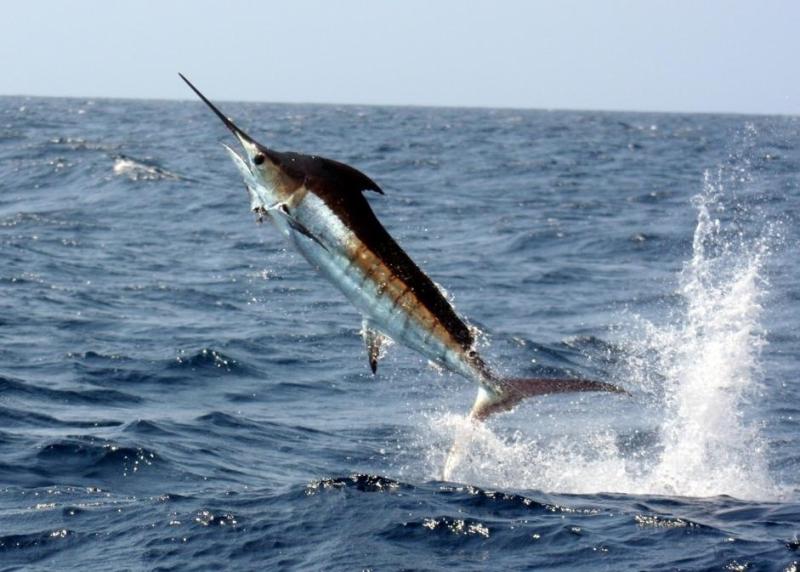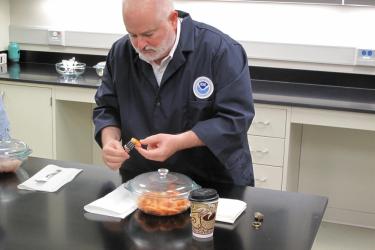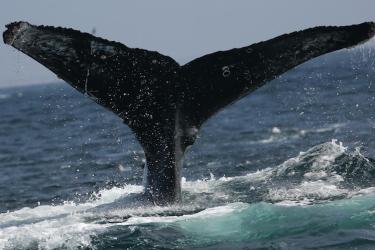The United States achieved several victories for our commercial and recreational fisheries at the 2019 meeting of the International Commission for the Conservation of Atlantic Tunas (ICCAT) in Mallorca, Spain, which ended November 26, 2019. The U.S. delegation was central to the negotiations to address juvenile mortality of overfished big eye tuna through increases in fish aggregating devices (FADs) closure periods Atlantic-wide as well as a reduction in the total allowable catch. Of particular note was a win for observer safety, an issue that NOAA has long been advancing in multiple regional fisheries management organizations.

The Commission adopted a measure to reduce the total allowable catch for blue marlin and white marlin, both of which have been overfished for years. This measure will end overfishing of these magnificent species and allow for the rebuilding of the stock.
While we are thrilled to get our measure passed to end overfishing of marlin, we had also hoped to get progress on shortfin Mako. The United States advanced a no retention measure that offered an incentive to member nations if they reduced their mortality of shortfin mako by 80%, which would have resulted in less mortality than a simple no retention policy. Unfortunately, we could not gain the required consensus.
Significant U.S. Achievements
Modernization of Fisheries Management
Comprehensive amendments were made to the 50-year-old ICCAT Convention to bring it into line with modern fisheries management standards, clarify ICCAT’s mandate to manage sharks, and ensure that all key fleets targeting ICCAT species are bound by its rules.
Conservation and Management Plan for Bigeye and Yellowfin Tuna
A conservation and management plan for tropical tunas was adopted which will reduce the Total Allowable Catch (TAC) for overfished bigeye tuna and includes measures to protect juvenile bigeye and yellowfin, including an Atlantic-wide closure of fish aggregating devices (FADs) and reduced FAD deployment limits. Prior to this meeting, the FAD closure was limited to the Gulf of Guinea only for 2 months and we were able to extend it to Atlantic-wide for 2 months in 2020 and 3 months in 2021.
We anticipate this will reduce juvenile mortality of bigeye and enable the stock to begin rebuilding.
Rebuilding Programs for Atlantic Blue Marlin and White Marlin
The Commission adopted a measure co-sponsored by the United States to implement rebuilding programs for Atlantic blue marlin and white marlin stocks including TACs consistent with scientific advice. This success reduces the TAC for blue marlin from 2000t to 1,670t.
Protection of Observers
As initially proposed by the United States, measures were passed to protect the safety of observers in ICCAT’s regional observer programs and which harmonized with global initiatives addressing observer safety.
Other U.S. Priorities
Several other U.S. priorities were addressed at the 2019 ICCAT meeting, including:
- A one-year extension of current management measures for North Atlantic shortfin mako shark while the Commission works toward adoption of a comprehensive rebuilding program.
- Precautionary TACs for North and South Atlantic blue shark.
- A roadmap for management strategy evaluation (MSE), proposed by the United States, that outlines next steps for northern swordfish, northern albacore, bluefin, and tropical tunas MSE.
- A stock assessment update scheduled for eastern and western Atlantic bluefin tuna in 2020 to provide scientific advice for 2021 and 2022.
- A new Working Group on control and traceability measures to identify loopholes that reduce effectiveness of ICCAT measures, focused on eastern Atlantic and Mediterranean bluefin tuna.
- A measure on vessel sighting that encourages ICCAT members to board and inspect vessels without nationality, as well as vessels of non-members.
- An amendment to the Pilot Program for the Voluntary Exchange of Inspectors, expanding the scope of the program to include bluefin tuna farms and traps.
- Continued development of an integrated online reporting system to improve monitoring and compliance.
- Compliance Committee focus on the lack of reporting of recreational catch and dead discards, especially for billfish, poor implementation of conservation measures for billfish and shortfin mako shark, and the lack of implementation of required minimum standards for scientific observer programs by many ICCAT members.
- Adoption of Strategic Plan for Compliance Review, led by the United States, to help improve the focus of ICCAT’s compliance process.
- A measure preventing the loss and abandonment of fishing gear.
Work Ahead
International collaboration is critical to the effective work of ICCAT, and the 2019 ICCAT meeting involved a high level of engagement from a broad range of parties working together to promote sustainable management in ICCAT fisheries. There is much work ahead, and the United States will continue to push ICCAT and its parties to be forward leaning and to prioritize the implementation of measures to conserve and manage tuna and tuna-like species







